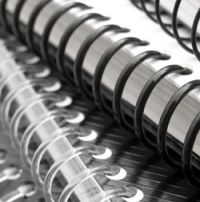

The Department for Environment, Food and Rural Affairs (DEFRA) has launched an eight-week consultation which seeks views on the proposed reforms aimed at overhauling the outdated industrial emissions permitting framework in England.
The proposed changes focus on industrial activities only, such as installations and medium combustion plants. They do not cover waste operations, mining waste operations, radioactive substances activities, water discharge activities, groundwater activities or flood risk activities.
The current regulatory system has managed to successfully reduce industrial pollution and deliver over £52 billion in benefits to human health, ecosystems and labour productivity. However, it was found that the regime is outdated, slow and not flexible enough to support rapid industrial and clean energy transformation. These reforms are playing a key part in the government's broader Plan for Change and the 10-year Industrial Strategy, which aims to accelerate innovation, streamline regulation and support net-zero transition.
The proposals in this consultation are set out in five chapters:
Chapter 1: Enabling innovation and encouraging new technologies
Permitting processes can act as barriers to innovation, especially for research and development (R&D) activities. This Chapter explores new approaches to R&D, including:
Chapter 2: Agile standards - rapid, predictable and integrated standard setting
Current standards can be slow to update, which might create uncertainty and delays in deploying clean technologies. Reforms would:
Chapter 3: Proportionate regulation and coherence in the framework
The permitting framework should be proportionate to the pollution risks of activities and provide certainty for emerging clean technologies.
The proposed reforms include:
Chapter 4: Regulator effectiveness and efficiency
Under the new proposals, regulators should be able to deliver permits and deliver risk-based decisions quickly and proportionately, while recovering costs fairly.
The key proposals include:
Chapter 5: A transparent framework
Transparency is key to meeting international obligations, setting clear requirements and enabling local communities to understand pollution control.
The proposals involve modernising the UK Pollutant Release and Transfer Register (PRTR), expanding the range of pollutants reported and streamlining the reporting requirements.
What comes next
This consultation runs from 26 August 2025 until 21 October 2025. DEFRA seeks feedback from the industry currently covered by the permitting regime, NGOs, academics and the interested parties. The responses will inform detailed policy proposals and shape future legislation.
Although this consultation applies to England only, DEFRA intends to align the consultation findings with the devolved administrations to develop a UK-wide BAT framework where feasible.
For more information on this subject, see: